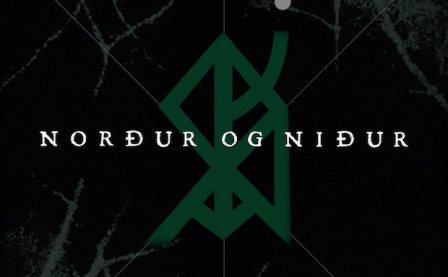I recently came across a few “iTunes essentials” playlists that are unfortunately indicative of how “ambient” music has come to be perceived. The Indie chillout playlist features Mogwai, Tortoise, and Sigur Rós. To many listeners, this dynamic (though arguably formulaic) music is “ambient” and “chill,” serving mainly as background to doing homework or falling asleep. While I think that labeling the music of Sigur Rós "ambient" indicates a gross misunderstanding of what ambient music is, the label is perfectly suited to Jónsi and Alex’s debut album/art project.
Riceboy Sleeps is one of the most aurally pleasing records I’ve heard in awhile. It’s also one of the most frustrating. Not in the sense that it’s challenging or demanding -- rather, the opposite is true. This album is ambient music in Satie’s “furniture music” sense: it’s lovely sonic wallpaper and will likely compliment the mood of wherever it’s playing, but it’s far from engrossing. What’s so troublesome about this album, a collaboration between Sigur Rós frontman Jón “Jónsi” pór Birgisson and partner Alex Sommers, is in how much potential for greatness is suggested but never realized.
It’s true that Sigur Rós relies heavily on bombast and overwhelming emotion, often seeming heavy-handed, but they’ve indeed mastered dynamic variation within their songs. Riceboy Sleeps is similar in mood to many Sigur Rós records -- alternately blissful and mournful, frequently contemplative -- but it lacks almost any kind of intentional motion, instead favoring a gentle drifting feel. And this could be forgiven (and even beneficial) had the duo trimmed the mostly eight-minute songs down to two- or three-minute vignettes. But the shortest song here is five minutes, and the majority of these tracks simply wander around for too long, repeating themselves.
“Indian Summer” serves as a microcosmic demonstration of the best and worst qualities of Riceboy. Distant, somber piano plays amid creaking floorboards, static, and various found sounds for about four minutes. For the remaining five, a string arrangement of the same chord progression is played, with some of Jónsi’s wordless falsetto vocals complementing the rich string textures. Both of these are lovely, but it’s curious that what seems like two elements of the same song are separated in this fashion. Opener “Happiness” (which made an early appearance on the Dark Was the Night compilation) is beatific and texturally sumptuous, but it simply doesn’t have the momentum required to merit its nine-minute length.
“Boy 1904,” however, is one of the more successful tracks here, in that it simply doesn’t overstay its welcome. The surreal, droning vowel sounds (provided by a recording of the last castrato singer, whom Jónsi no doubt took inspiration from) and gently crackling static bring to mind The Caretaker’s A Stairway to the Stars (though nothing here is as brilliant as his work). If more well-paced songs existed on this release, the listener would be able to easily remember distinct moments and individual songs. As it is, though, the song cycle seems like one voluminous, amorphous mass of "pretty" sounds.
Riceboy Sleeps is an elegiac set of powerfully evocative songs, functioning at its best as lovely background music while flipping through the pages of the art book it's bundled with. Listened to unaccompanied and in its entirety, the experience is frustrating and unpleasant, and its bloated feel renders a lot of it impotent.
1. Happiness
2. Atlas Song
3. Indian Summer
4. Stokkseyri
5. Boy 1904
6. All The Big Trees
7. Daníell In The Sea
8. Howl
9. Sleeping Giant
More about: Jónsi & Alex



